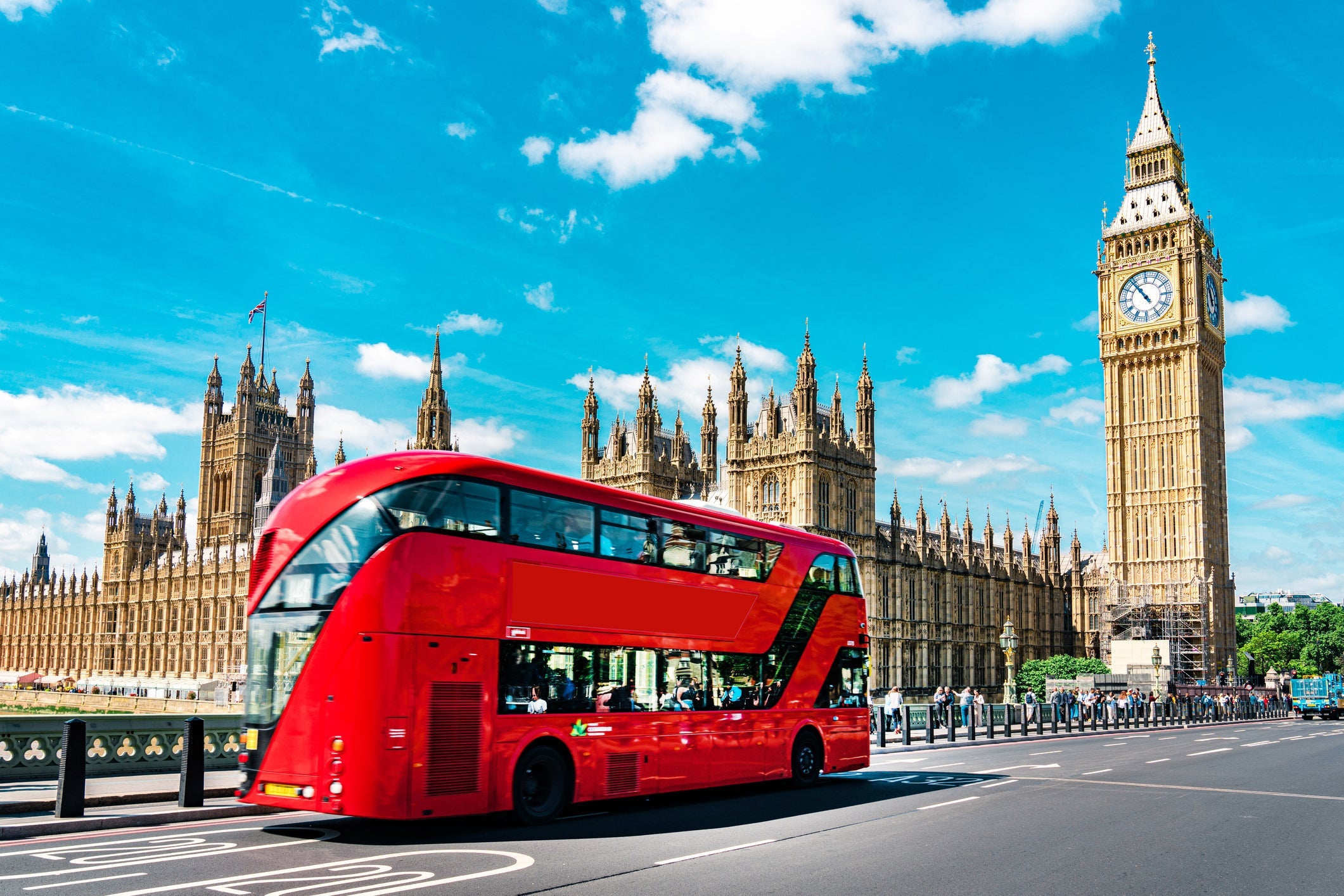Flying from the UK is about to get even more expensive for premium-cabin passengers
As part of its spring budget announcements, the United Kingdom's government has revealed plans to increase the Air Passenger Duty (APD) for passengers flying in premium cabins.
While the APD is set to increase for all fare types in line with the inflationary Retail Price Index, non-economy tickets will be hit with additional increases.
The APD is a tax paid by all passengers at least 16 years old departing from a U.K. airport. Airlines include the tax as part of ticket prices and then pay it to the government. The fee varies depending on flight length and class of service.
The newly announced tax hikes will affect both short- and long-haul premium economy tickets and business-class and first-class tickets, as well as those flying in private jets departing the U.K. Domestic flights will not be affected.
Related: The best time to book flights for the cheapest airfare in 2024
The Treasury confirmed to TPG that the APD on premium-cabin tickets for the 2025-26 financial year will be 16 British pounds (about $20) for short-haul flights and 224 pounds (about $286) for long-haul flights. This amounts to a 12% increase from the current APD on long-haul flights and a 23% increase on short-haul flights in premium cabins. The increased taxes will be payable from April 2025.

Currently, the APD in premium cabins is 13 pounds for short-haul flights and 200 pounds for long-haul flights. This amount was already due to increase in the 2024-25 financial year to 14 pounds for short-haul flights and 202 pounds for long-haul flights.
"The 2025-26 APD rates for economy passengers will increase in line with forecast RPI [Retail Price Index], rounded to the nearest pound," the Treasury said. "Rates for those flying premium economy, business and first class and for private jet passengers will also increase by forecast RPI and will be further adjusted for recent high inflation to help maintain their real terms value."
The Treasury expects the new APD to raise an extra 110 million pounds between 2025 and 2026, as well as another 10 million pounds a year for each year after that through 2028-29.
"The decision to increase APD goes against the Prime Minister's commitment not to discourage flying through taxation," Tim Alderslade, CEO of Airlines UK — the industry body representing U.K.-registered carriers — said, commenting on the announcement. "Hitting passengers — including families and those travelling for leisure — with stealthy tax rises will only make the UK even less competitive on the global stage, with aviation taxes and airport charges already amongst the highest in the world."
Bottom line
The APD for flights from U.K. airports was already notoriously high. Frequent flyers will not welcome this news. However, it is worth remembering that the fees will not affect flights arriving in the U.K., only those departing.
If you wish to avoid paying the U.K.'s higher taxes and fees on premium cabins, the best solution is to fly from mainland Europe, traveling there by either rail or by flying on an economy ticket.
Related reading:
- Key travel tips you need to know — whether you're a first-time or frequent traveler
- Best travel credit cards
- Where to go in 2024: The 16 best places to travel
- 6 real-life strategies you can use when your flight is canceled or delayed
- 8 of the best credit cards for general travel purchases
- 13 must-have items the TPG team can't travel without
TPG featured card
at Capital One's secure site
Terms & restrictions apply. See rates & fees.
| 5X miles | Earn 5X miles on hotels, vacation rentals and rental cars booked through Capital One Travel |
| 2X miles | Earn unlimited 2X miles on every purchase, every day |
Pros
- Stellar welcome offer of 75,000 miles after spending $4,000 on purchases in the first three months from account opening. Plus, a $250 Capital One Travel credit to use in your first cardholder year upon account opening.
- You'll earn 2 miles per dollar on every purchase, which means you won't have to worry about memorizing bonus categories
- Rewards are versatile and can be redeemed for a statement credit or transferred to Capital One’s transfer partners
Cons
- Highest bonus-earning categories only on travel booked via Capital One Travel
- LIMITED-TIME OFFER: Enjoy $250 to use on Capital One Travel in your first cardholder year, plus earn 75,000 bonus miles once you spend $4,000 on purchases within the first 3 months from account opening - that’s equal to $1,000 in travel
- Earn unlimited 2X miles on every purchase, every day
- Earn 5X miles on hotels, vacation rentals and rental cars booked through Capital One Travel
- Miles won't expire for the life of the account and there's no limit to how many you can earn
- Receive up to a $120 credit for Global Entry or TSA PreCheck®
- Use your miles to get reimbursed for any travel purchase—or redeem by booking a trip through Capital One Travel
- Enjoy a $50 experience credit and other premium benefits with every hotel and vacation rental booked from the Lifestyle Collection
- Transfer your miles to your choice of 15+ travel loyalty programs
- Top rated mobile app


